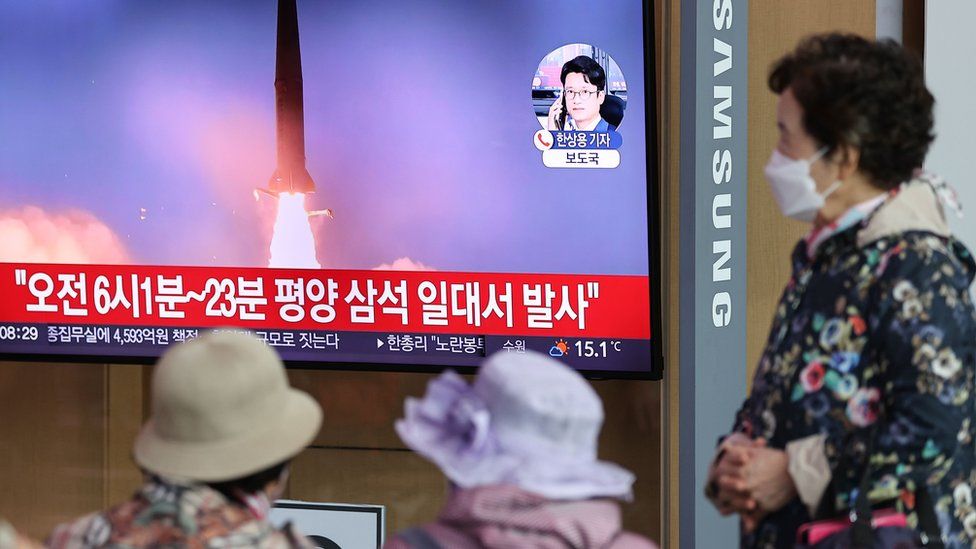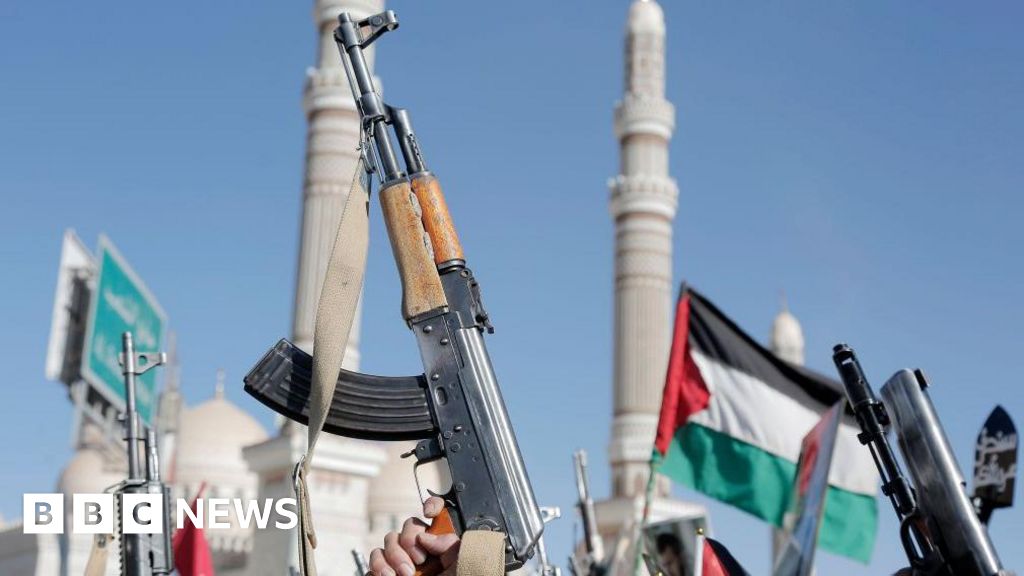ARTICLE AD BOX
 Image source, EPA
Image source, EPA
South Koreans woke up to the news that North Korea had fired two more short-range ballistic missiles
By Frances Mao & Jean Mackenzie
BBC News
North Korea fired another two ballistic missiles on Thursday - the sixth such banned launch in less than two weeks.
Pyongyang on Wednesday said its recent blitz was a response to joint US and South Korean military drills.
On Tuesday Pyongyang fired a ballistic missile over Japan, prompting the US to call an emergency UN Security Council meeting.
At the meeting the US accused Russia and China of protecting the North from stronger sanctions.
Moscow and Beijing had given Pyongyang "blanket protection", the US ambassador to the UN said. The Chinese and Russian representatives said increased dialogue was better than punishment.
On Wednesday the US, Japan and South Korea carried out military drills which they said were a response to Tuesday's launch. The US said there was "no equivalency" between a banned missile test-fire and security drills.
However, North Korea sees such exercises as proof its enemies are preparing for an attack.
South Korea and Japan said the first of Thursday's missiles, launched at about 06:00 local time (21:00 GMT) flew about 350km (217 miles) with a maximum altitude of around 100km, while the second missile had a flight range of about 800km at an altitude of around 50km.
The recent flurry of launches is strongly reminiscent of the period leading up to its last nuclear weapon test in 2017.
Back then, as is happening now, the North tested missiles, there was no dialogue with the US, and Pyongyang fired two missiles over Japan.
Satellite imagery shows that the North has been restoring tunnels at their nuclear testing site, which they had claimed to have destroyed in 2018 during a short-lived diplomatic rapprochement with the US under President Trump.
Last month, North Korea also revised its nuclear laws, with leader Kim Jong Un declaring his country an "irreversible" nuclear power.
With everything in place, Kim appears to be waiting for a politically opportune moment to carry out its seventh nuclear test.
Analysts believe a test is most likely to happen during the window of three weeks between the Communist Party Congress in China later this month and the US mid-term elections in early November.

 2 years ago
24
2 years ago
24








 English (US) ·
English (US) ·